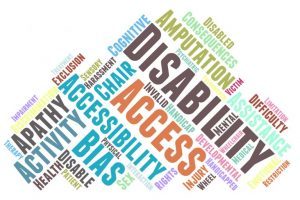What Federal Employees with Disabilities Need to Know About the Rehabilitation Act
While most people are familiar with the Americans with Disabilities Act (ADA), far fewer are familiar with the Rehabilitation Act. But, the Rehabilitation Act provides important rights to covered employees, and it is important that federal employees with disabilities have a clear understanding of how the law protects them.
What Is the Federal Rehabilitation Act?
The Rehabilitation Act is a federal law that protects federal employees with disabilities against discrimination in the workplace. It is similar in scope to Title I of the ADA in that it prohibits employment-related discrimination against “qualified individuals with disabilities” based on their disabled status. “Qualified” individuals are those who are capable of performing the essential functions of their federal jobs—either with or without reasonable accommodations—and the Rehabilitation Act defines “disability” to include both physical and mental impairments.
While the Rehabilitation Act has several sections, Sections 501 and 508 are the most important for federal employees. As the U.S. Department of Labor (DOL) explains, “Section 501 prohibits federal agencies from discriminating against qualified individuals with disabilities in employment. It also requires these agencies to take affirmative action in hiring, placing and advancing of individuals with disabilities.” Under Section 508, federal agencies must make their electronic and information technology (EIT) platforms accessible to individuals with disabilities. Under Sections 501 and 508 of the Rehabilitation Act, prohibited forms of discrimination under the Rehabilitation Act include (but are not limited to):
- Denying federal employment
- Denying access to certain job or advancement opportunities
- Terminating federal employment based on an employee’s disability
- Failing to provide reasonable accommodations
- Failing to provide accessible technology
- Providing disparate treatment to disabled and non-disabled federal employees
The rights to reasonable accommodations and accessible technology are among the most important rights afforded to federal employees under the Rehabilitation Act. Federal agencies have a legal obligation to provide reasonable accommodations and accessible technology, and their failure to do so can amount to a de facto denial of employment opportunities. As the Office of Personnel Management (OPM) explains, under the Rehabilitation Act:
“A reasonable accommodation is any change in the work environment or the way things are usually done that enables an individual with a disability to enjoy Equal Employment Opportunity. Examples of reasonable accommodations include, but are not limited to, sign language interpreters for people who are deaf, screen readers for people who are blind, accessible work stations for people who use wheelchairs, and more.”
Under Executive Order 13164, in order to comply with the Rehabilitation Act, federal agencies must “establish effective written procedures for processing requests for reasonable accommodation by employees and applicants with disabilities.” When federal agencies fail to provide reasonable accommodations (or otherwise violate employees’ or job applicants’ legal rights under the Rehabilitation Act), affected employees and job applicants can pursue administrative claims, and, if necessary, they can take their claims to court. Pursuant to Section 505 of the Rehabilitation Act, employees and job applicants who need to take their claims to court can seek to recover their attorneys’ fees in addition to securing other appropriate remedies.
When Can (and Should) You File a Claim Under the Rehabilitation Act?
As a federal employee, when can (and should) you file a claim under the Rehabilitation Act? We recommend that you speak with a lawyer about filing a claim if you feel as though you have experienced any form of discrimination based on your disability. In many cases, it will be possible to resolve issues informally, and your lawyer may be able to help you submit a request for an appropriate form of reasonable accommodation that obviates the need to pursue legal action.
If you believe that you have been denied a federal employment opportunity or that you lost your federal job because of your disability, a lawyer can help you assert your legal rights under the Rehabilitation Act. In these scenarios, asserting your legal rights may involve seeking placement or reinstatement, seeking back pay or other damages, or some combination of the above. While securing these remedies may take time, asserting your legal rights is important, and you can achieve a favorable outcome with an experienced lawyer on your side.
Contact Us to Discuss Your Legal Rights Under the Rehabilitation Act
Do you have questions about your legal rights under the Rehabilitation Act as a federal employee? If so, we encourage you to contact us for more information. To schedule an appointment with an attorney at The Law Firm of J.W. Stafford, please call 410-514-6099 or tell us how we can help online today.

